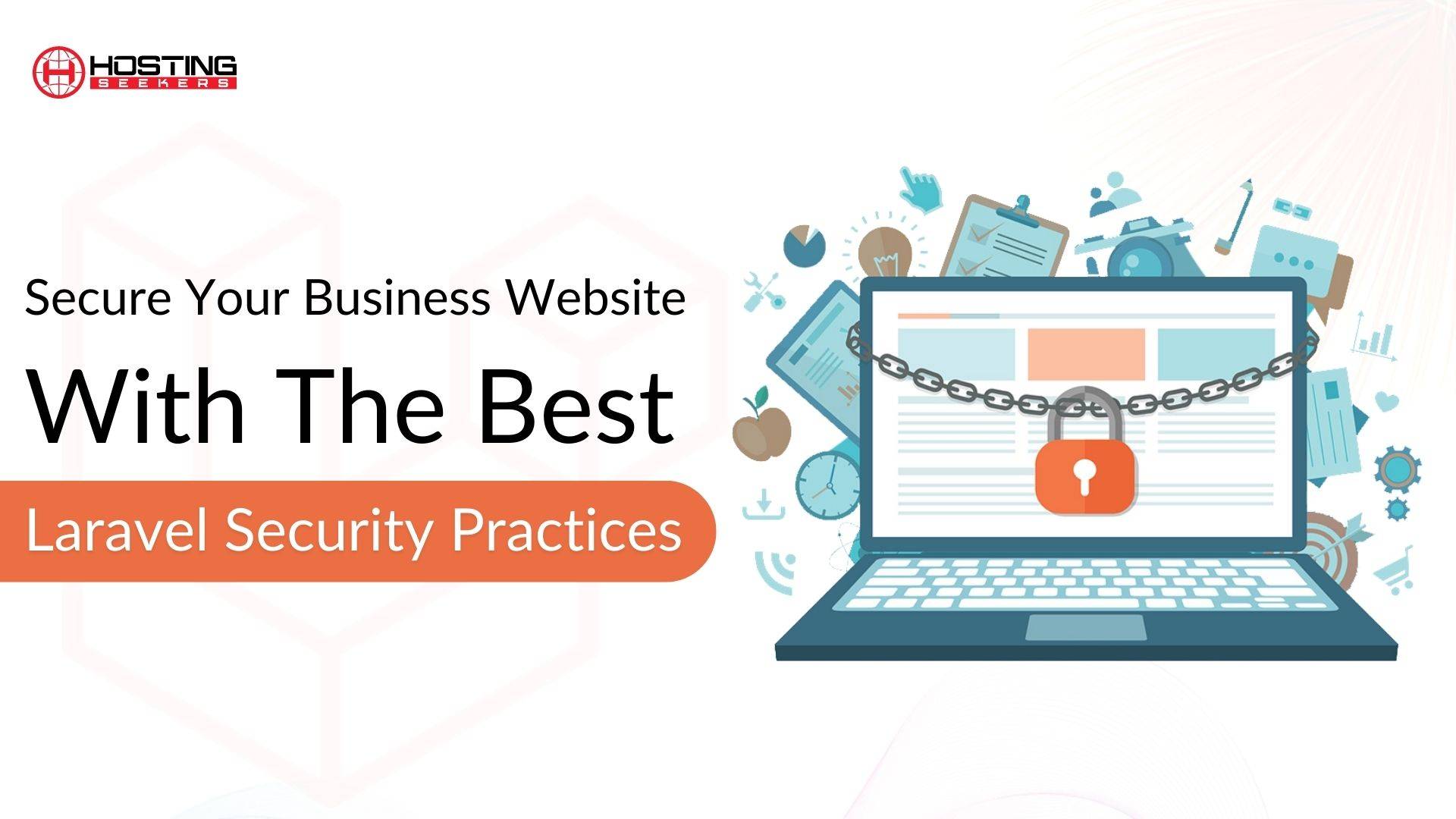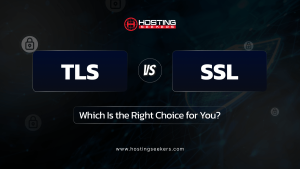
Secure Your Business Website With The Best Laravel Security Practices
Security Published on Date: September 19th 2022Laravel is a well-known open-source PHP framework that is both performant and user-friendly in web development. This is why most business owners search for the best Laravel hosting providers. Today, we’ll look in depth at Laravel’s security practices.
Laravel framework speeds up the development of websites and mobile applications. It includes built-in capabilities for easier integration. Because of its ultra-powerful modular packaging layout and unique features, it is great for Laravel companies.
Why Is Your Website Security So Crucial?
Website security helps to maintain your database and website. It offers support in situations when problems occur. Depending on your plan, you may get access to a Content Delivery Network (CDN). This can improve the availability and performance of your website. Along with this, it also secures and creates dependable automatic backups of your important files.
Cybersecurity is a sensitive topic that you need to handle with extreme caution at all times. Regardless of your company size or how small a local firm or a major global corporation you operate, make sure you get quality services from the best Laravel hosting providers like HostingSeekers.
Website Security scans websites for many security flaws like Trojan viruses, backdoor file and redirect hacks, and more.
A website security breach can have devastating effects on a business that is completely out of proportion to its size. This is due to the average cost for a corporation to repair the harm caused by a cyberattack being over $1,7 million.
A small to medium-sized business could quickly go out of business due to this. The large organization over a few weeks’ worth of time. You should secure your website even if you run a small business so that you don’t have enough money to do so.
Benefits Of Focusing On Website Security
On the bright side, if you take the necessary precautions to protect your website, you can stay one step ahead of the competition in your industry. This is due to the fact that having a secure website greatly reduces the risk of exposure you and your business face. Whereas your competitors remain vulnerable to online attacks. Make sure that your website is not one of those that are regularly attacked.
You can stay relaxed knowing that your website is secure as you took extra precautions to protect it. Establish a uniform policy to ensure that every employee realizes the necessity of website security. This will help you give peace of mind.
We all know that cybercriminals are always a risk to businesses. You can reduce such happenings by taking proper steps to secure your website. Your website’s online security must be adequate. Take preventive measures to guard your company by addressing all security issues.
Laravel Security Features
Laravel hacking is a common issue that can lead to vulnerabilities in other supporting XSS and other files. Most victims of website hacks discover that their site pages are being redirected to other malicious websites.
Laravel provides the following security features to developers to help them reduce Laravel vulnerabilities in their applications. To get the most out of these features, one should get managed Laravel hosting services from a reliable Laravel hosting provider.
1. Laravel Authentication System
Laravel has a strong user authentication process with boilerplate code in the scaffolding. To ease authentication, Laravel employs “providers” and “guards.” Guards authenticate users for each request they make, whereas providers help users retrieve information from the database.
All you have to do as a developer is set up the database, controllers, and models. Authentication features get developed into the app during the process.
2. Laravel And CSRF Tokens Have Security Flaws
To protect the website from hackers or external attackers, Laravel uses CSRF tokens. To gain access to the system (Laravel website), the attackers generate invalid requests. But CSRF attempts to protect the system by denying such requests.
When it receives an AJAX request, the Laravel platform generates a unique token for the request. The Laravel security checker checks to see if the previous user session and the second session have the same requests. If the token does not match, the Laravel security feature denies the request and secures the website.
3. Cross-Site Scripting (XSS)
Cross-site scripting (XSS) is the most common method hackers use to attack your website. They gain access to your website by entering malicious scripts and codes through the weakest point of your website. The XSS attack inserts JavaScript code into the text area. These extra codes have an effect on the website’s performance because they cause it to reload every time a user visits that page.
The native security feature of Laravel includes tools to protect the database from such attacks.
4. SQL Injection
When you insert any untrusted and random input into a SQL query, the entire system becomes vulnerable to SQL injection. SQL injection is one of the many types of attacks that can degrade the performance of a website. As a developer, you must safeguard the system against any SQL query changes.
Eloquent ORM in Laravel provides security in Laravel by using PDO binding, which protects SQL queries from changes.
Laravel Security Packages
Laravel has a number of packages that make its applications safer. Even though I can’t talk about them all, here are the most popular Laravel security packages:
1. Laravel Security Component
The Laravel security component protects roles and objects and also integrates the Symfony security core. It uses voters to check the privileges given to different roles based on their roles. This could prove that it is secure. The Laravel Security Component is a collection of features that help protect web applications from various types of security threats, such as cross-site scripting (XSS), SQL injection, and Cross-Site Request Forgery (CSRF).
It provides tools to help developers protect their applications from these threats, such as input sanitization, HTTP header management, encryption, and authentication. It also includes built-in support for popular security protocols, such as OAuth2, OpenID Connect, and SAML. Additionally, it provides support for user authentication, authorization, and password management.
2. Laravel Security
One of the most popular packages, Laravel security is known for fixing XSS vulnerabilities in the codebase. It was moved from the Codeigniter 3 platform to the Laravel 5 platform.
Laravel offers a number of security features to help keep secure Laravel application. It is important to understand these features and how to use them to ensure that your application is as secure as possible.
1. Authentication – Laravel provides a number of authentication mechanisms, such as password reset, authentication guards, and hashing algorithms. All of this help to ensure that only authorized users can access your application.
2. Authorization – Laravel offers a number of authorization solutions including roles and permissions, which allow you to control what users can and cannot do within your application.
3. Encryption – Laravel provides a secure encryption system to protect sensitive data stored in your application.
4. Cross-Site Request Forgery (CSRF) Protection – Laravel provides CSRF protection to ensure that malicious requests are not sent to your application.
5. Input Validation – Laravel provides a variety of validation mechanisms to ensure that user input is sanitized and does not contain malicious code.
6. SQL Injection Protection – Laravel provides protection against SQL injection attacks by using prepared statements when dealing with user input.
7. Security Headers – Laravel provides a number of security headers to help protect against common web security vulnerabilities.
3. Laravel-ACL
Laravel-ACL gives the Laravel authentication process permissions based on roles. The package helps applications protect their routes and CRUD controller methods. Laravel ACL is a package for the Laravel framework that allows developers to easily manage user permissions and roles in their applications.
It provides a simple way to add, update, and delete user roles and permissions. With Laravel ACL, developers can easily assign permissions to specific roles, allowing them to control which areas of their application a user has access to. Additionally, Laravel ACL provides a way to manage user session data, allowing developers to track user activity and manage access to certain application features.
4. Sanctum
This package allows for API authentication using Laravel‘s built–in authentication system. Sanctum is a lightweight authentication system for Laravel built on top of Laravel’s authentication components. It is designed to make authentication easy and convenient for developers. Sanctum provides an authentication system that is easy to understand and quick to set up.
You don’t need to worry about complex authentication libraries or writing custom authentication codes. With Sanctum, you can quickly add token-based authentication and API validation to your application. It provides a secure and convenient way to authenticate users and validate API requests. Sanctum also includes features such as multi-factor authentication, passwordless authentication, and token refresh.
Endnote
For your Laravel website, you should always look for a secure and the best Laravel hosting provider. The hosting server will house all critical files and sensitive information related to your business website. So, if it is not sufficiently secured, there is a high risk of getting hacked and accessed by outside sources. Make it a habit to back up your website. Moreover use strong credentials, configure user authorization and authentication, and so on to keep your server secure.


